
Real Estate Websites for Investors
During the old times, whenever real estate investors need information, they only rely on the real estate agent’s secured property data. But thanks to the fast-pacing technology, there are lots of resources available now. Online databases are only one-click away and can be accessed by investors anytime. Whether you are a beginner investor or an experienced one, online databases and websites are a big help in starting your property search. Read further to know the best real estate websites for investors.
From a beginner investor perspective, investing in real estate for the first time can be overwhelming. Especially if you do not have a background in it. It feels like you are groping in the dark. Good thing you can now look up everything on the internet. From tutorials, tools, guides, and specific searches, the internet will not fail you. Investors can search properties all over the country, and they can filter it based on specific qualities.
12 Best Real Estate Websites for Investors
Redfin
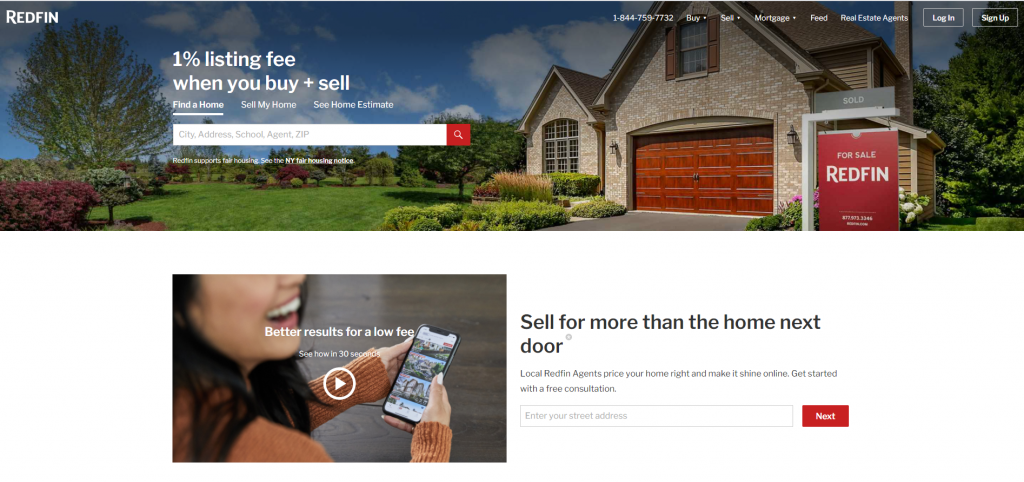
The first of the 12 best real estate websites for investors is Redfin. It is a brokerage company based in Seattle, Washington. Its website provides real estate search and brokerage services. It also has a variety of platforms accessible to agents. Since it is originally a brokerage company, they intend to represent people that are buying and selling homes. In addition, for-sale-owner-properties and broker-listed homes can be found here as well. Investors can access MLS listing information in Redfin with historical data into a map. They can search for homes and filter them by area, city, zip code, MLS number, and even school zone. Other detailed parameters are also available such as price range and the number of beds and baths.
Trulia
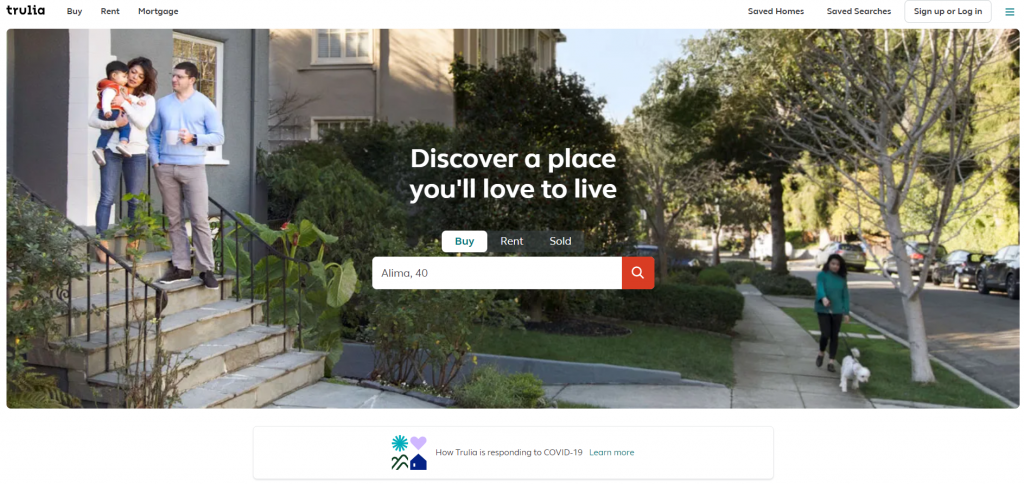
Another real estate database we will discuss is Trulia. It is a subsidiary of Zillow, which we will talk about next. Trulia provides rental and for-sale listings to the public and allows people to connect with real estate agents. Investors can look up listings in Trulia and will see photos of the property, its detailed information, price, and some information about the neighborhood. The information listed on the website is accurate as it is drawn on MLS listings. Additionally, investors can asset the search based on criteria like price, number of bed and baths, lot size, square footage, and the structure type.
Trulia has other features that attract more visitors. When an investor searches a property, he/she can see the breakdown of the monthly cost of the house. This includes property taxes, mortgage payment, mortgage insurance, home insurance, and even association fees. This feature allows investors and homebuyers to give an idea if they can afford the house or not. Besides this breakdown of the monthly cost, Trulia has a distinct feature which is crime map data. Trulia pools crime data for each neighborhood based on local law enforcement and news reports. Giving its visitors a grasp about the safety of the area.
Zillow
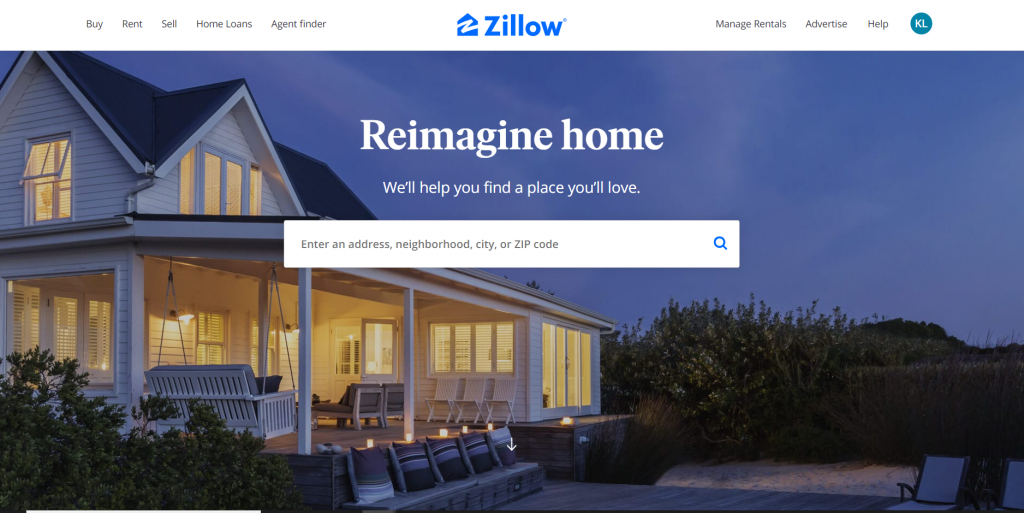
If you are an experienced investor, you might have probably used Zillow multiple times. Zillow is a no-stranger in the real estate industry. It is one of the most popular real estate websites for investors. Zillow has 36 million unique monthly visitors according to Statista. There are 110 million properties listed on-site, including those that are off-market. This website is free to use by homeowners, listing agents, and landlords.
Zillow and Trulia are similar, but Zillow gives a more graphical user experience. Just like Trulia, key information like the photos of the property, detailed information, price, and neighborhood information is present in Zillow. The search can be filtered based on criteria as well. But what makes Zillow different from Trulia is its feature called Zestimate. This feature gives an estimated market value of a property. However, Zillow emphasizes that Zestimates are only a starting point in determining the home value. An official appraisal is still needed. Zestimate does not just give the estimated current market value of a home. It also predicts the price of the property after a year. The numbers provided are based on the current home and market information.
Market trends and research in the real estate industry are also provided on the site on the research tab. This is the section where you can find the latest data, news, market trends, and policies in the market.
Neighborhood Scout
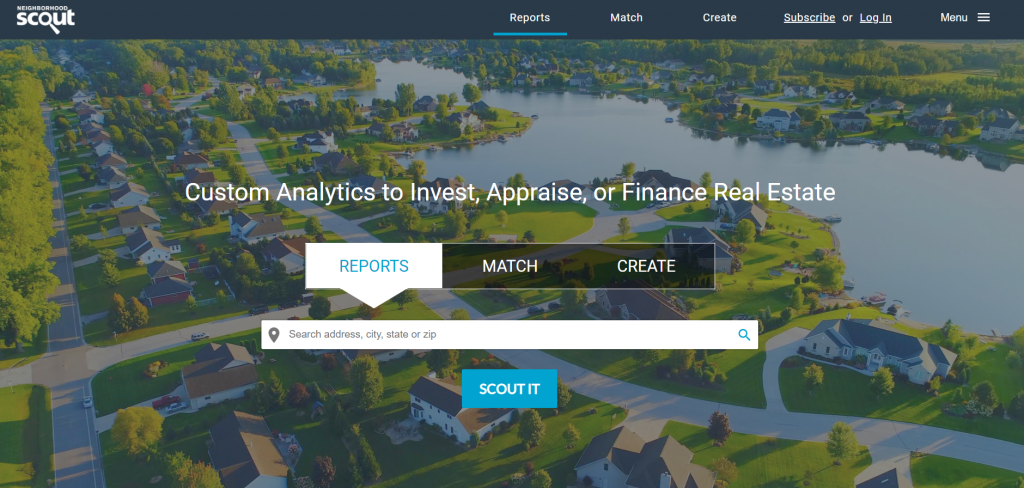
If you are looking for more specific community information, Neighborhood Scout can help you with that. The site gives the most accurate and comprehensive, neighborhood-specific crime, demographic, housing, forecast analytics, real estate data available today. Neighborhood Scout offers 2,723 unique date elements that make up its real estate data. It gives a glass-like national coverage of every U.S neighborhood. Thus, allowing investors, insurers, mortgage bankers, and lenders to reduce risk and make informed decisions.
AirDNA
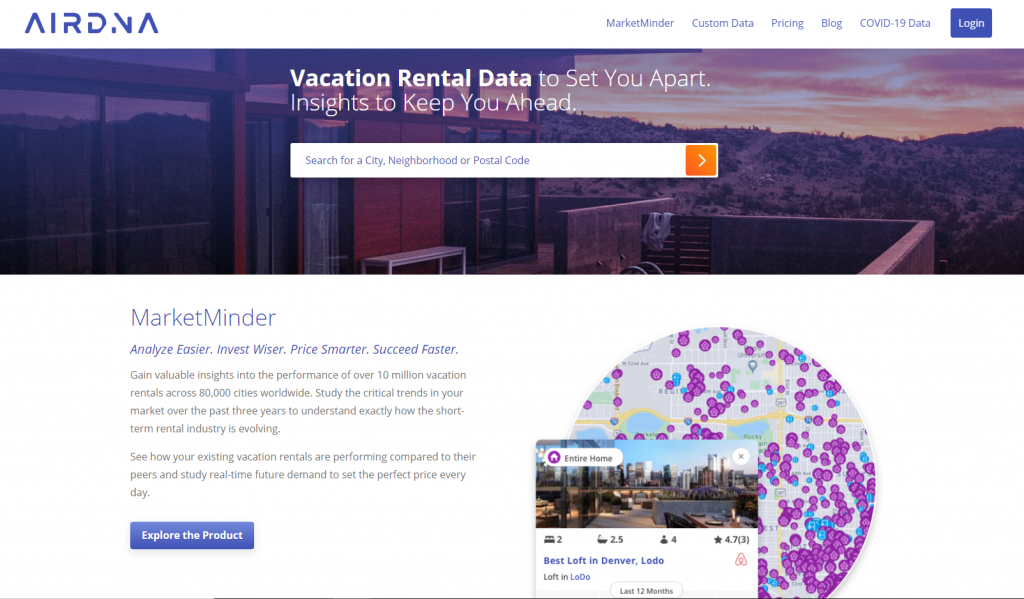
This online database is perfect for landlords. As short-term rentals like Airbnb and VRBO becomes popular, it may be hard for landlords to check how their rentals are doing since tenants come and go. AirDNA gives valuable insights into over 10 million vacation rentals across 80,000 cities worldwide. Investors and landlords can check how their existing vacation rentals are performing based on real-time demand. These data help landlords create a strategy like setting the perfect price every day.
Rentometer
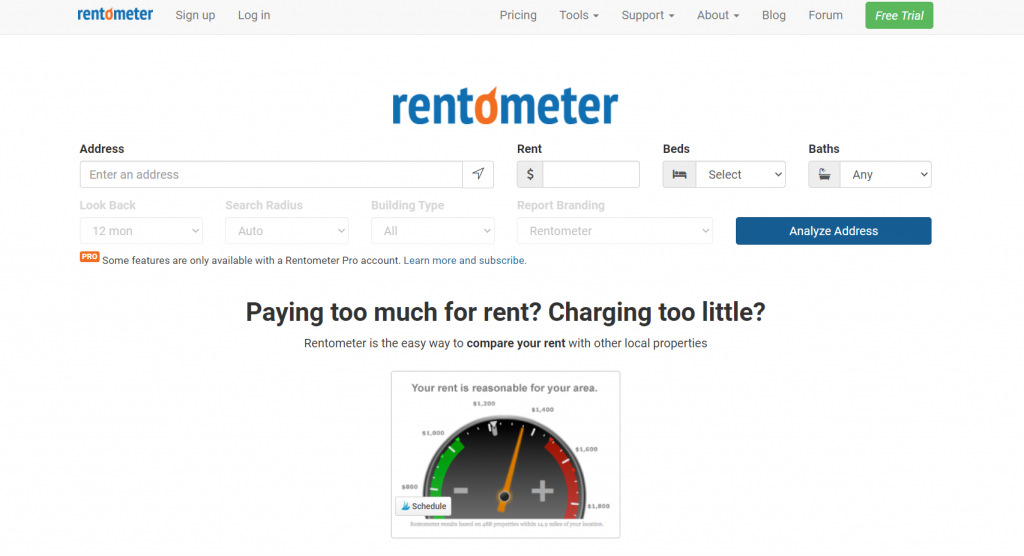
As a landlord, it is crucial to determine if you are charging too little or too much. Rentometer is a website that provides the user with an estimate of the rent prices in the neighborhood. You just need to enter the property address, the monthly rent you are charging, and the number of bedrooms in the unit. Rentometer will then compare your rent amount with other similar properties in the vicinity. Hence, giving the landlord an idea of the price he/she charges is correct. This website is also helpful to beginner investors who do not have an idea about the average rent prices in the neighborhood.
City-Data
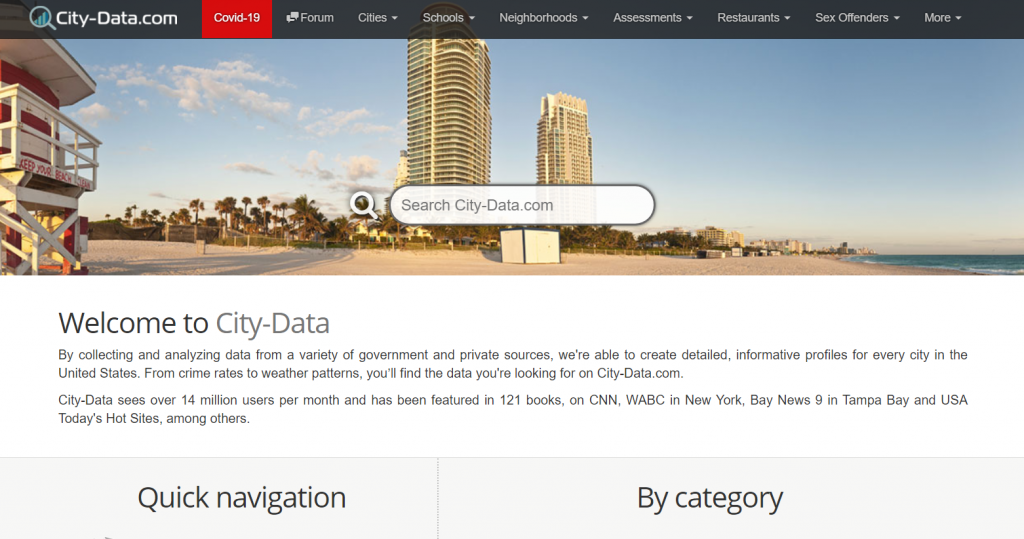
City-data presents information and data specific to U.S cities. Each city and neighborhood are compared using government data to show demographics such as race, education, income, weather, air pollution, religion, crime, and housing of a particular city. Besides, recent home sales and home value estimates are also indicated on the website.
Google Maps
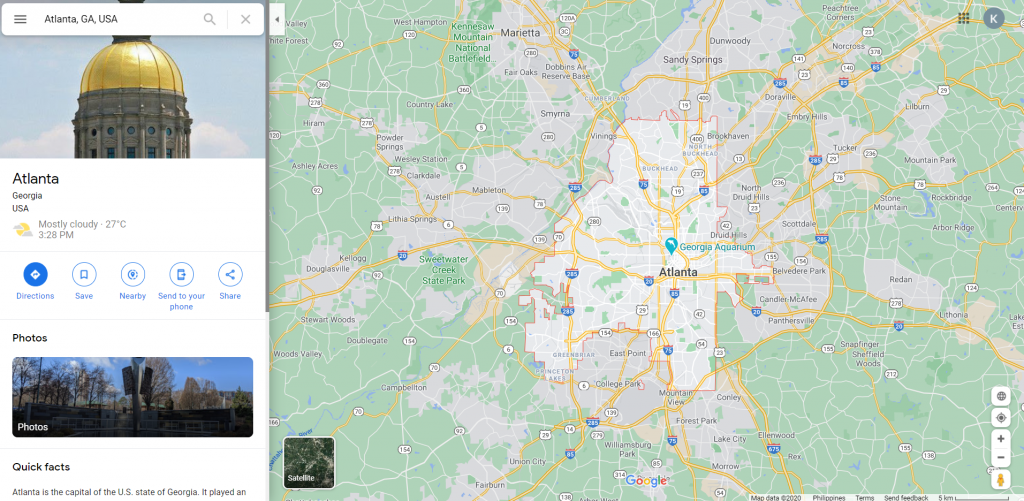
This website is widely used for directions, real-time traffic conditions, and satellite images and photography of a specific location. But these demographics are useful for investors in determining the best location for investment. Especially these factors play a big role in the performance of an investment. Investors can also use Google Maps to find local businesses they might want to invest in.
BiggerPockets

BiggerPockets is one of the most respected online real estate platforms. It offers real estate investing social network, information hub, and marketplace. BiggerPockets also provides complete resources for anyone looking to be successful in real estate investing. From blog articles, podcasts, books, forums, to videos. Currently, BiggerPockets has over 1,000,000 members.
Auction.com
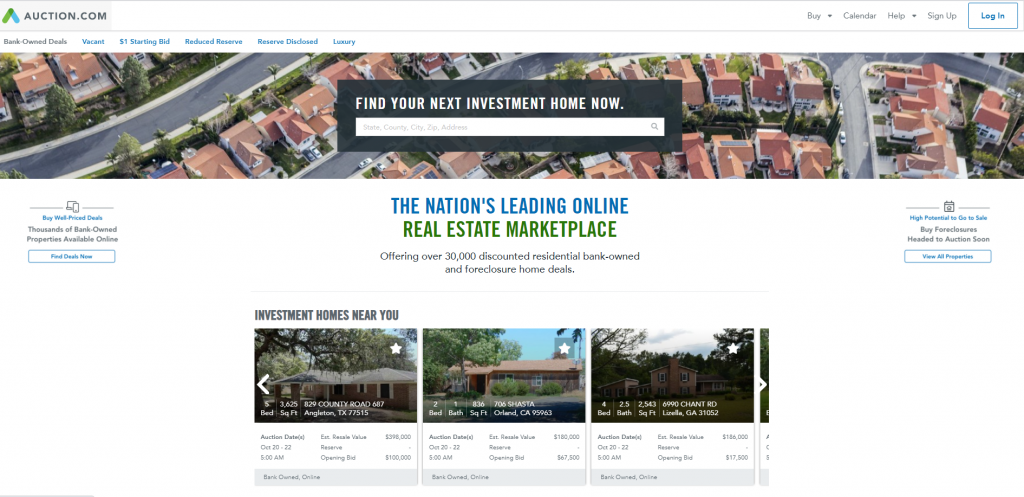
The nation’s leading online real estate marketplace is none other than Auction.com. It focuses exclusively on the sale of bank-owned and foreclosure properties to real estate investors via live auction events and online auctions. As a result, it makes every transaction efficient and transparent.
CityProtect
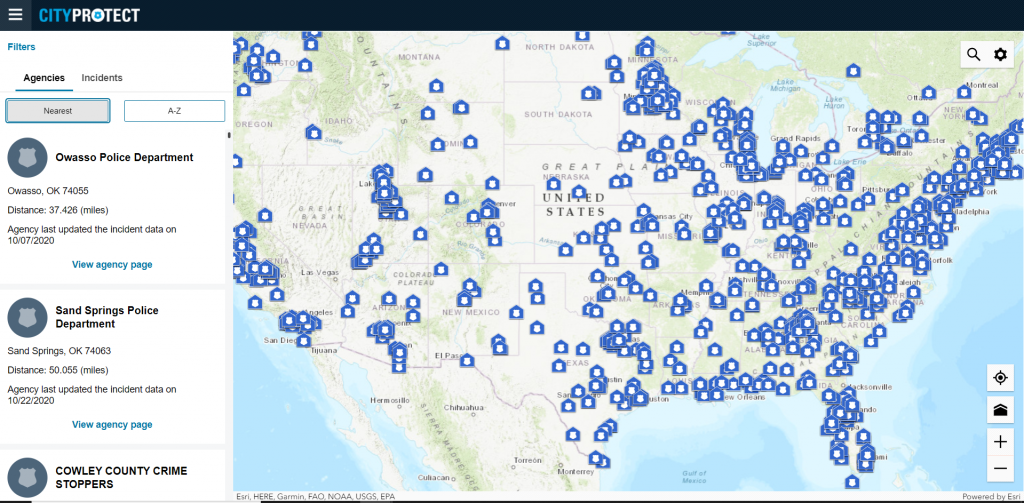
CityProtect is an online website where investors can look up an address and find out the incidents that happened and have been reported around the area. It is the investors’ easiest connection to public safety. They can even explore the crime data on the map there.
Cozy
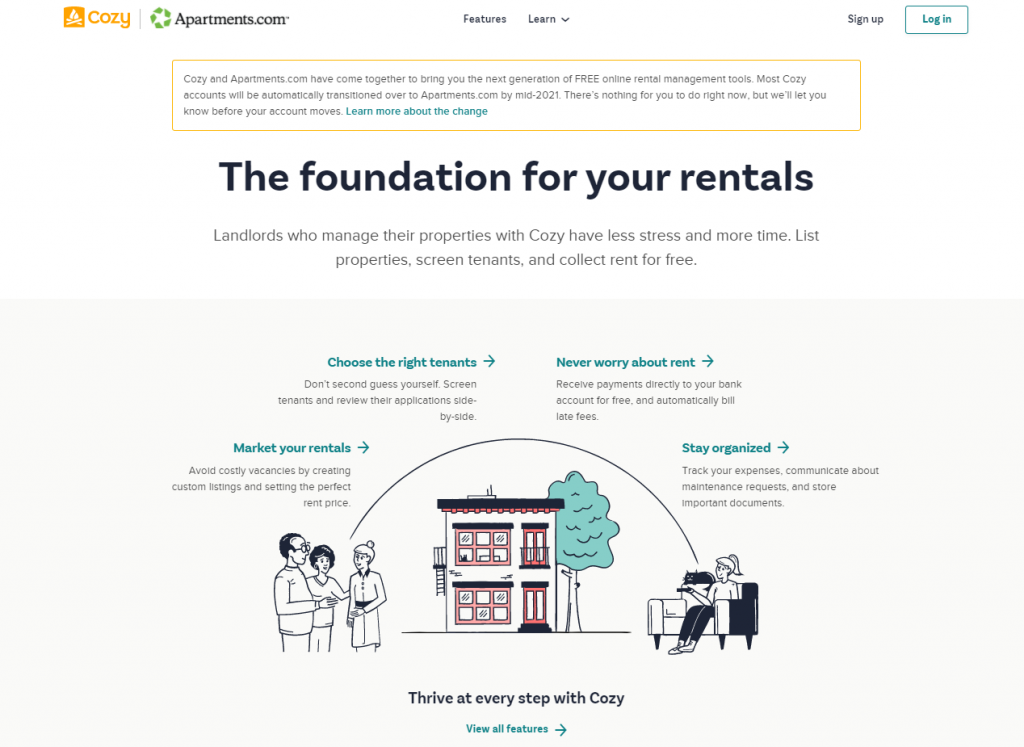
Managing rental properties can be time-consuming. This is where Cozy comes in. Cozy gives a complete, modern service for independent landlords and investors through Cozy Property Management. It is an online property management portal that allows landlords to list their rental properties and collect rent payments. Additionally, the website also has screening tools to screen tenants and a detailed report with a rent estimate including the expected vacancy rate.
Summary
There you have the 12 best real estate websites for investors. If you will utilize them properly, these websites are big help not only for experienced investors but also for beginner investors who do not know where to start.